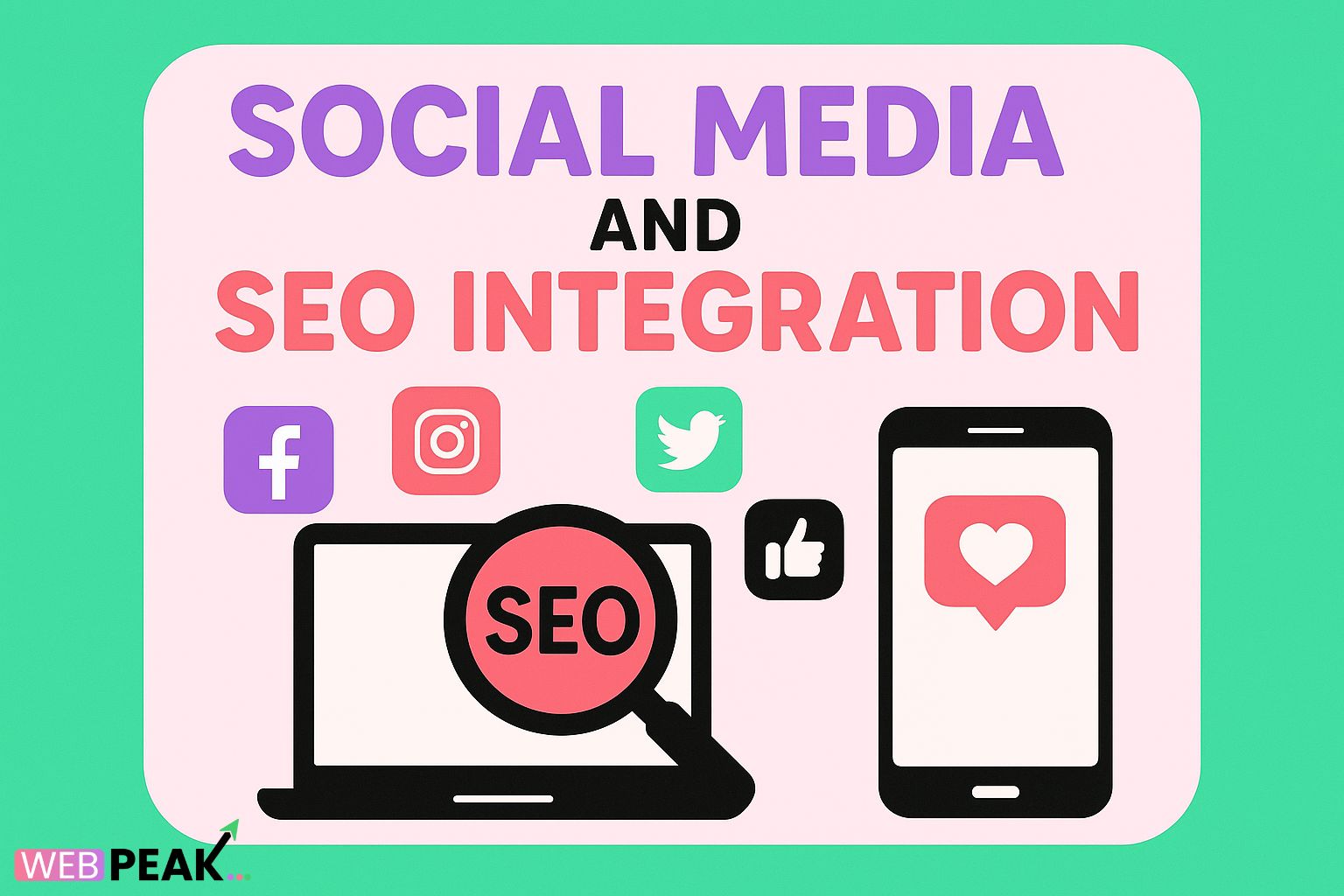How Social Media and SEO Work Together to Boost Online Visibility
In today’s digital landscape, brands can no longer rely on a single channel to attract and engage their target audience. Businesses need a multi-faceted approach to remain competitive, and two of the most powerful tools available are social media marketing and search engine optimization (SEO). While many see these as separate strategies, the reality is that social media and SEO can work hand in hand to significantly boost online visibility, drive website traffic, and increase conversions.
Understanding the Relationship Between Social Media and SEO
Search Engine Optimization (SEO) focuses on optimizing a website so it ranks higher in search engines like Google. This involves keyword research, on-page optimization, technical improvements, and link building. Social media, on the other hand, is about building a brand presence on platforms like Facebook, Instagram, LinkedIn, and X (formerly Twitter) to connect with potential customers.
While social signals (likes, shares, comments) are not direct ranking factors in Google’s algorithm, they still contribute indirectly to SEO success. A strong social media presence helps amplify content, reach a broader audience, and generate engagement that can lead to backlinks — one of the most important ranking factors in SEO.
How Social Media Supports SEO Efforts
1. Increased Content Distribution
Even the best piece of content can go unnoticed if no one sees it. Social media acts as a distribution engine, helping businesses share their blogs, infographics, videos, and guides with a wider audience. The more people who see your content, the higher the chances it will be linked to by other websites, boosting your domain authority and search engine rankings.
2. Enhanced Brand Awareness
When users see your brand frequently on social media, they are more likely to search for it directly. This leads to an increase in branded search queries — an important indicator for search engines that your business is relevant and trustworthy. This can positively influence your organic rankings over time.
3. Social Profiles Rank in Search Results
Your social profiles often appear on the first page of search results when someone looks up your brand. Having active, optimized social profiles helps control what people see about your business and improves your overall online presence.
4. Boosted Engagement and Website Traffic
Social media platforms can drive highly targeted traffic to your website. By sharing links to optimized content, you bring users who are genuinely interested in your products or services. The more relevant traffic your website gets, the better engagement metrics you’ll see — which can indirectly benefit SEO performance.
5. Generating Natural Backlinks
High-quality content that gets shared on social media is more likely to be picked up by bloggers, journalists, and industry influencers who may link back to your content. These natural backlinks are among the strongest signals search engines use to determine authority and improve rankings.
Best Practices for Combining Social Media and SEO
1. Optimize Your Social Profiles
Make sure your social media profiles are fully optimized with consistent branding, relevant keywords, and links back to your website. This helps search engines understand who you are and makes it easier for users to find your business.
2. Share High-Quality, SEO-Friendly Content
Focus on creating content that provides real value to your audience. Use keyword research to guide your topics and incorporate SEO best practices in your headlines, meta descriptions, and formatting. When you share this content on social media, it has a better chance of performing well both on social platforms and in search engines.
3. Engage With Your Audience
Social media isn’t just about posting — it’s about building relationships. Reply to comments, join conversations, and encourage user-generated content. The more engaged your audience is, the more likely they are to share your content and spread your brand organically.
4. Leverage Social Media Ads
Paid social campaigns can give an initial boost to your best-performing content, getting it in front of a wider audience. This can lead to increased shares, backlinks, and traffic — all of which benefit SEO efforts in the long term.
5. Track and Measure Performance
Use analytics tools to monitor which social posts drive the most website visits, backlinks, and conversions. This data can help refine your content strategy and focus on the platforms that deliver the best results.
Why You Need Professional Help
Successfully combining social media and SEO requires a well-thought-out strategy, consistent execution, and the ability to adapt as algorithms change. Businesses that try to handle everything on their own often miss opportunities for growth or fail to implement best practices effectively. This is where working with experts can make a difference.
If you’re looking to maximize your online visibility, consider partnering with WEBPEAK. They are a full-service digital marketing company offering web development, SEO, and social media marketing services. Whether you need a high-performing website, a tailored SEO strategy, or a comprehensive digital marketing plan, WEBPEAK can help you achieve measurable results and stand out from the competition.
Conclusion
Social media and SEO are not competing strategies — they complement each other. By using social media to amplify your content, build brand awareness, and attract natural backlinks, you enhance your SEO efforts and improve your chances of ranking higher in search results. Businesses that embrace this synergy are more likely to see sustainable growth, more website traffic, and better conversion rates.
In an increasingly competitive online environment, integrating these two powerful tools is no longer optional — it’s essential. Start aligning your social media and SEO strategies today to create a strong digital presence that drives real business results.





